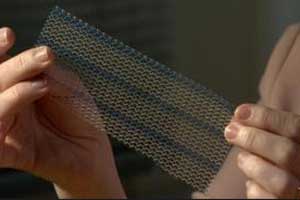- Home
- Editorial
- News
- Practice Guidelines
- Anesthesiology Guidelines
- Cancer Guidelines
- Cardiac Sciences Guidelines
- Critical Care Guidelines
- Dentistry Guidelines
- Dermatology Guidelines
- Diabetes and Endo Guidelines
- Diagnostics Guidelines
- ENT Guidelines
- Featured Practice Guidelines
- Gastroenterology Guidelines
- Geriatrics Guidelines
- Medicine Guidelines
- Nephrology Guidelines
- Neurosciences Guidelines
- Obs and Gynae Guidelines
- Ophthalmology Guidelines
- Orthopaedics Guidelines
- Paediatrics Guidelines
- Psychiatry Guidelines
- Pulmonology Guidelines
- Radiology Guidelines
- Surgery Guidelines
- Urology Guidelines
Ban vaginal mesh operations says NICE

NICE is going to recommend that vaginal mesh operations should be banned for treating organ prolapse in England.This has followed after complaints from many women who have had a vaginal mesh implant.The complaints were that they caused severe pain and the side effects of having one are worse than the conditions they are intended to alleviate. As of now the draft guidelines from NICE say the implants should only be used for research - and not routine operations. Moreover, the use of vaginal mesh to treat urinary incontinence is not mentioned in the draft NICE guidelines.
The mesh implants are designed to help deal with incontinence and other problems following childbirth. The meshes are made of polypropylene and are used to support organs such as the vagina, uterus, bowel, bladder or urethra after prolapse following childbirth. The latest report says that around one in 10 women had experienced varied problems with it. Some of the women who have had complications with it are even contemplating legal action.
In the documents to be published in December - NICE has said that there were serious but well-recognized safety concerns and also evidence of long-term efficacy for implants treating organ prolapse was inadequate in quality and quantity.It further adds that when complications occur, they can be serious and are with life-changing consequences. NICE documents state that randomised controlled trial data showed no added benefit of using mesh compared with native tissue repair.
The use of implants to treat both organ prolapse and urinary incontinence has already been suspended in Scotland.The University of Oxford's Prof Carl Heneghan, an expert in the subject, said the draft guidelines were an admission that health services had "got this wrong" - calling the use of mesh a "catastrophe".He described the draft guidelines a "back-door ban" on implants that would effectively end their use, according to BBC News.
However, manufacturers of the implants have hit back at these claims, insisting that the implants help the vast majority of women who have had them fitted.The incidence of complications in hands experienced surgeons who have done a lot of these operations is very low.

Disclaimer: This site is primarily intended for healthcare professionals. Any content/information on this website does not replace the advice of medical and/or health professionals and should not be construed as medical/diagnostic advice/endorsement or prescription. Use of this site is subject to our terms of use, privacy policy, advertisement policy. © 2020 Minerva Medical Treatment Pvt Ltd